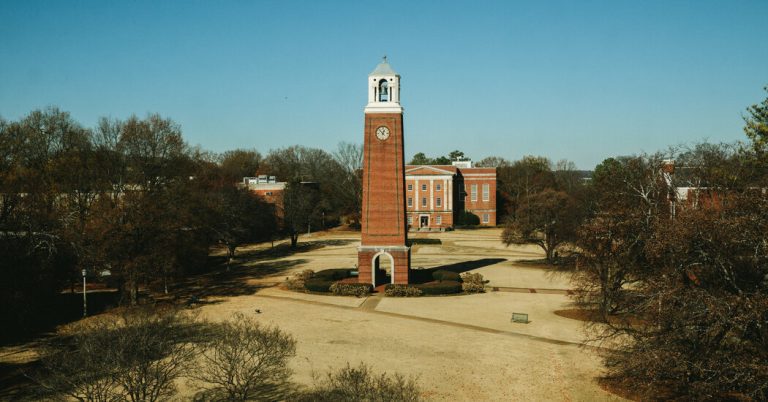Birmingham-Southern College, a private liberal arts school in Birmingham, Ala., is set to close at the end of May, bringing a bitter end to the school’s nearly 170-year history after failing to secure a multimillion-dollar loan from the state.
The school’s board of trustees voted unanimously Tuesday to close the school, with the college’s hundreds of students and staff receiving formal notice soon after.
“This is a tragic day for the college, our students, our employees and our alumni,” the Rev. Keith D. Thompson, chairman of the board of trustees, said in a news release. “But it’s also a terrible day for Birmingham, for the neighborhoods that have surrounded our campus for more than 100 years, and for Alabama.”
The school has been in debt for years. The 2009 recession and then the coronavirus pandemic exacerbated the toll of expensive campus investments and shrinking endowments. But many employees and students hoped its future could be salvaged after Alabama lawmakers approved a new loan program last year that could loan Birmingham-Southern up to $30 million.
Daniel Coleman, the school’s president, had proposed an ambitious plan to use the loan as a bridge to stay open while the college sought to replenish its endowment with pledges from private donors. But Young Boozer III, the state treasurer, denied the loan twice last year, citing concerns about the school’s ability to pay its debts.
“If you lend it, you own it — it’s a falling knife,” Mr. Boozer told a House committee this month.
The school’s allies in the Legislature sought to change the loan program with a new bill this year that shifted responsibility for approving loans from the state treasurer to the Alabama Commission on Higher Education and further clarified loan terms.
If the school closes, “there will be a real loss of revenue to the state, both direct and indirect,” Mr. Coleman told lawmakers this month. “And I think for the immediate west side of Birmingham, it’s going to be devastating.”
While the new bill was approved by the Senate earlier this month, “subsequent conversations with House leadership confirmed that the bill did not have enough support to move forward,” the school said in a news release.
On Tuesday, while the school was on spring break, the board met to vote on the closure. (The school said the timing of the meeting wasn’t “ideal,” but it better allowed administrators to convene and consider their options.)
The question of whether Alabama should offer a loan to a private college has lawmakers, university officials and students pondering whether a classic liberal arts education is still valued in the state.
The school’s allies had warned of the consequences of closing an institution that helped boost investment in Birmingham and leaving the sprawling, nearly 200-acre campus vacant. His critics said it was not worth diverting any kind of public aid, even in the form of a loan, to a school with a long history of fiscal mismanagement.
In the middle, however, were students and staff who still believed in the college’s approach to education and its small classes.
The school said it had begun working to help students transfer to other colleges both in Alabama and out of state. Some seniors set to graduate at the end of the summer will be able to either complete their final requirements online or at other schools.
“We put students first and will do everything we can to help them find the best place to continue their path to graduation,” said Dr. Laura K. Stultz, professor and faculty member.




